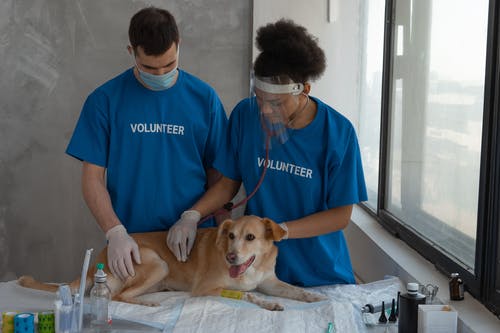When it comes to our feline companions, oral health is often overlooked. However, maintaining your cat’s dental health is essential to prevent bad breath and other complications.
In this article, we’ll explore the causes of bad breath in cats, the signs of dental issues, and numerous preventative measures to help keep your furry friend’s teeth and gums healthy. Let’s dive in!
Causes of Bad Breath in Cats
There are various reasons why cats develop bad breath, also known as cat halitosis. Some of the most common causes include periodontal disease, tartar buildup, and tooth decay. These issues occur when food particles get stuck between the teeth, leading to bacterial growth and inflammation. Other potential factors contributing to bad breath in cats include oral tumors and diet-related problems like gastrointestinal issues.
Signs of Dental Issues in Cats
Aside from bad breath, there are other signs that your cat may be dealing with dental issues. Symptoms like drooling, difficulty chewing, a change in appetite, and inflammation of the gums may indicate that your cat needs some dental care. Keeping an eye on these symptoms will help you identify and address potential dental concerns early on, ultimately preventing further complications.
Importance of Professional Dental Care for Cats
Regular visits to the veterinarian for dental checkups and cleanings are crucial for maintaining your cat’s oral health. Failing to provide your cat with professional dental care can lead to infections, tooth loss, and even damage to internal organs due to bacteria traveling from the mouth. Scheduling annual veterinary checkups will help ensure your cat’s teeth and gums remain clean and healthy.
Providing your cat with a comprehensive veterinary dental service is crucial to their overall health. These services include professional teeth cleaning, plaque and tartar removal, fluoride treatment, and dental X-rays. Regular vet dentistry can help detect dental problems early on, often sparing your cat from severe oral health issues.
Preventative Measures
Brushing Your Cat’s Teeth
Regular teeth brushing is one of the most effective ways to maintain your cat’s dental health. It may seem challenging, but your cat will eventually get used to the routine with the right tools and approach. Start using cat-safe toothpaste and a soft-bristled toothbrush specially designed for cats. Be patient, gentle, and consistent in your efforts, and remember to reward your pet after each brushing session.
Feeding a Dental-friendly Diet
The food you give your cat can significantly impact their dental health. Opt for a high-quality, protein-rich diet with fewer carbohydrates and low-quality fillers. Dry food can also be beneficial in keeping your cat’s teeth clean by preventing tartar buildup.
Providing Fresh Water
Ensuring your cat always has access to clean drinking water keeps them hydrated and helps wash away food particles and bacteria that can lead to dental issues.
Offering Dental Treats and Chews
Dental treats and chews can be an effective way to reduce tartar buildup in your cat’s teeth. These products, available in various flavors and forms, contain enzymes that help break down plaque while providing your cat a tasty treat. Remember to always choose treats approved by organizations like the Veterinary Oral Health Council to ensure their safety and efficacy.
Using Dental Toys
Another way to help keep your cat’s teeth clean is to provide them with dental toys. These toys feature a rough surface that helps remove food particles and debris from your cat’s teeth as they play. Be sure to choose safe and appropriate toys for your cat’s size and play preferences.
In some cases, your cat may require vet surgery to address severe dental issues. These surgeries can include tooth extractions, gum tissue removal, and the treatment of oral tumors. Your veterinarian will discuss the best course of action if your cat requires surgical intervention for their dental health.
It’s essential to note that preventive care extends beyond our feline friends. If you have other pets, such as birds, it’s essential to ensure they’re up-to-date on vaccinations and routine checkups. An avian vet in Des Moines can help you take care of your bird’s needs with the same level of importance and expertise.
When to Seek Veterinary Assistance
While it’s important to implement preventative measures for your cat’s dental health, it’s equally crucial to know when to seek professional help. Always consult your veterinarian if your cat exhibits any signs of dental issues or if you’re struggling to address their bad breath with at-home care. Your vet can provide the necessary guidance and treatments to keep your cat’s dental health in check.
Final Words
Maintaining your cat’s dental health is essential to ensuring their overall well-being. By taking preventive steps, monitoring for potential signs of dental issues, and seeking professional assistance when needed, you can help your feline friend live a long, healthy, and bad-breath-free life.



